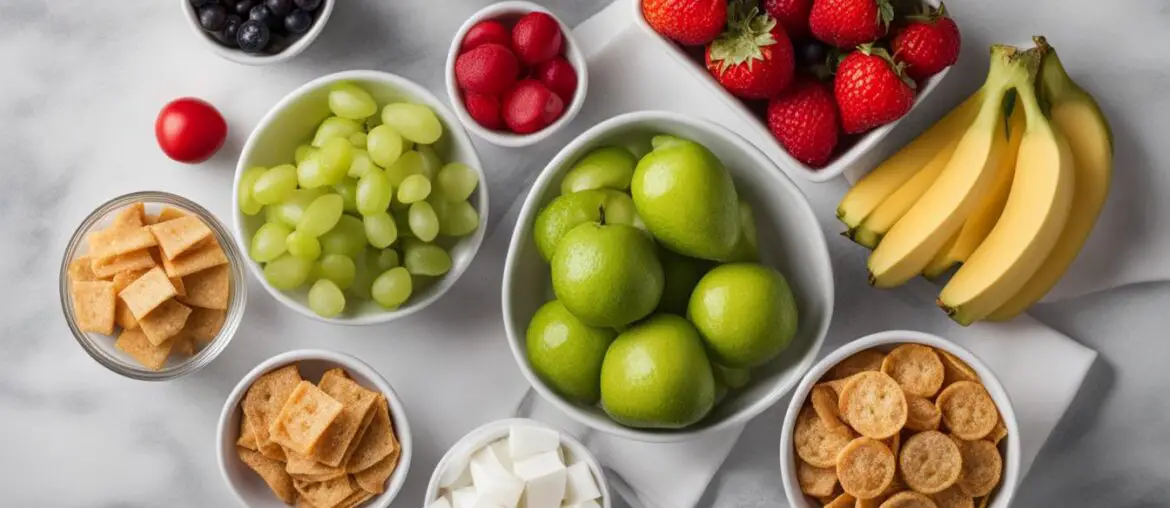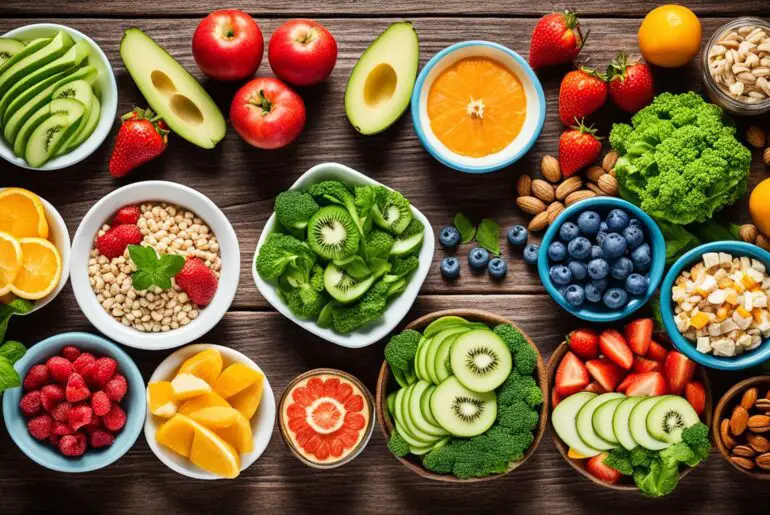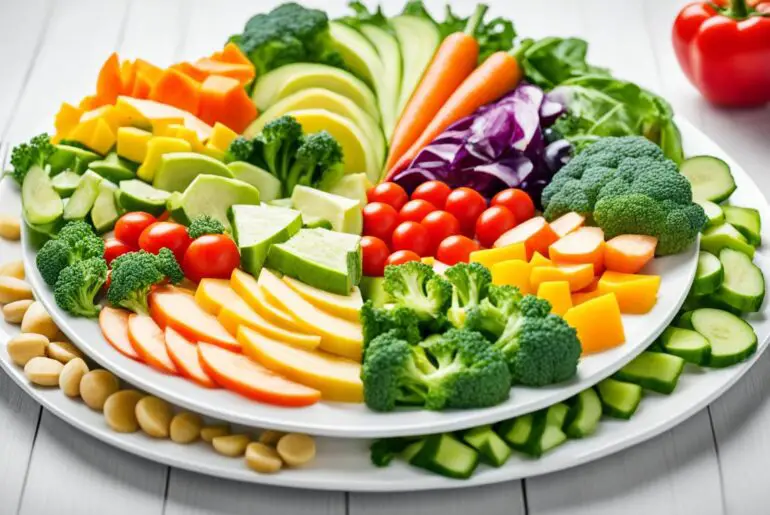Did you know that Phase 3 of the HCG Diet is a critical phase where many individuals make common mistakes that can hinder their weight loss progress? It’s true! Making these mistakes can lead to weight gain and frustration, undoing all the hard work you’ve put into the previous phases. But don’t worry, I’m here to help you avoid these pitfalls and navigate Phase 3 successfully.
During Phase 3 of the HCG Diet, there are several key mistakes that people often make. These include eating too many cautionary foods, consuming too many or too few calories, adding in too many cautionary foods at once, having hidden sugars or starches, not tracking food intake, not weighing every day, and not consuming enough protein. By being aware of these mistakes and taking the necessary steps to avoid them, you can ensure that you continue to see progress and maintain your weight loss during Phase 3 of the HCG Diet.
Now, let’s delve into each of these mistakes and explore how you can avoid them for optimal results.
Key Takeaways:
- Avoid eating too many cautionary foods during Phase 3 of the HCG Diet to prevent weight gain.
- Ensure you are consuming the correct number of calories for sustained weight loss during Phase 3.
- Gradually add cautionary foods to your diet to avoid overwhelming your body.
- Be mindful of hidden sugars and starches in products consumed during Phase 3.
- Track your food intake daily to identify trigger foods and make necessary adjustments.
Reason #1: Eating too many cautionary foods
One of the main reasons for weight gain during Phase 3 of the HCG Diet is consuming too many cautionary foods. During the first 3 weeks of HCG Maintenance, it is important to avoid sugars, carbs, sweeter fruits, starchy vegetables, and certain dairy and fried items. In the second 3 weeks, some of these foods can be slowly added back in. Following a food chart and menu suggestions can help individuals make better choices and avoid consuming too many cautionary foods.
In order to maintain weight loss during Phase 3, it’s crucial to be mindful of the foods that should be restricted. Some cautionary foods to avoid during HCG Maintenance include:
- Sugars
- Carbs
- Sweeter fruits
- Starchy vegetables
- Certain dairy items
- Fried items
These foods can disrupt the balance of the HCG Diet and lead to weight gain. It’s important to follow the guidelines provided by a food chart or menu suggestions to ensure that only the allowed foods are consumed in the appropriate quantities.
By being cautious and mindful of the foods consumed during Phase 3, individuals can maintain their weight loss progress and successfully navigate the HCG Diet Maintenance phase.
Reason #2: Eating too many or too little calories
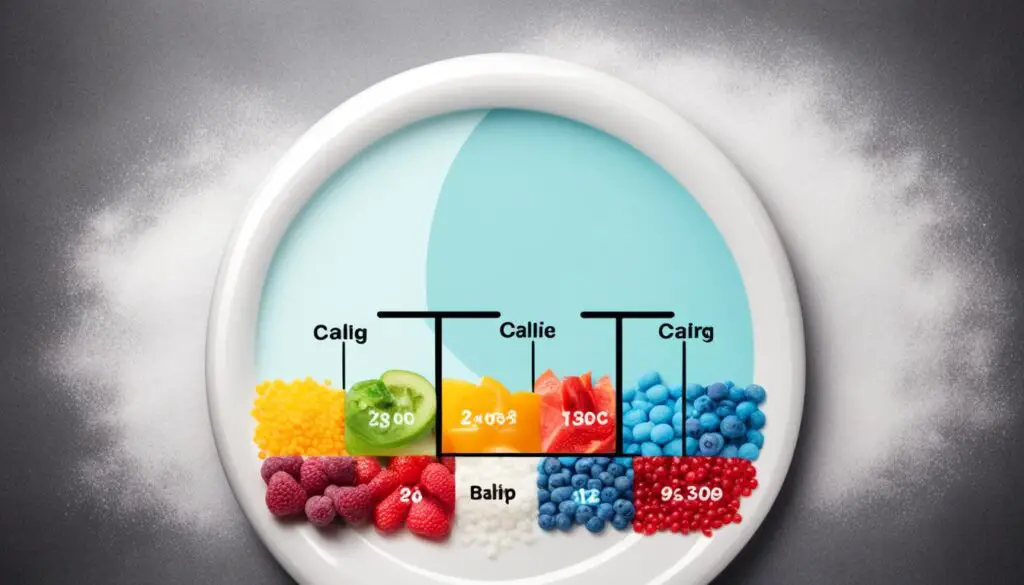
In Phase 3 of the HCG Diet, one of the key mistakes people make is not properly managing their calorie intake. It is crucial to strike the right balance and consume the correct number of calories to maintain weight loss progress. Eating too many or too few calories can have adverse effects on the body’s ability to shed pounds.
During Phase 3, it is recommended to aim for a daily calorie intake of around 1,500 calories. Consuming more calories than this can lead to weight gain and undermine the progress made during the earlier phases of the HCG Diet. On the other hand, eating too few calories can cause the body to go into starvation mode, where it conserves energy and holds onto weight, making it harder to continue losing pounds.
By following the recommended food list and portion sizes, individuals can ensure they are consuming the appropriate number of calories for Phase 3 of the HCG Diet. It is essential to strike a delicate balance and avoid both overeating and undereating in order to maintain steady and sustainable weight loss.
| Food Category | Calories (per 100g) |
|---|---|
| Lean meat (chicken breast, fish, lean beef) | 120-150 |
| Non-starchy vegetables (green leafy vegetables, cucumbers, tomatoes) | 10-50 |
| Fruits (strawberries, apples, oranges) | 50-80 |
| Grains and starches (avoid during Phase 3) | Varies |
| Dairy products (limited to specific options) | Varies |
By referring to the table above, individuals can get an idea of the average calorie content per 100g for various food categories. This can help in planning meals and ensuring that calorie intake remains within the recommended range. Remember to consult with a healthcare professional or nutritionist for personalized calorie requirements and guidance.
Reason #3: Adding in too many cautionary foods at one time
When transitioning into Phase 3 of the HCG Diet, it’s important to be cautious with the introduction of new foods. One common mistake is adding in too many cautionary foods at once. This can overwhelm the body and make it difficult to adjust.
To avoid this mistake, it’s recommended to gradually introduce new foods and give the body time to adapt and learn how to handle them. Following a food chart or guide can be incredibly helpful in determining which foods are allowed, not allowed, or cautionary. By introducing new foods slowly and in moderation, individuals can avoid weight gain and maintain their progress on Phase 3 of the HCG Diet.
For a smooth transition, it’s beneficial to categorize HCG Diet foods into three main categories:
- Allowed Foods: These are the foods that can be consumed in Phase 3 without any restrictions. They include lean meats, fish, eggs, vegetables, and certain dairy products.
- Cautionary Foods: These are foods that should be consumed cautiously, as they have the potential to stall weight loss or cause weight gain. This category includes fruits, certain starchy vegetables, and high-fat dairy products.
- Not Allowed Foods: These are the foods that should be completely avoided during Phase 3 as they can lead to weight gain. Foods in this category include sugars, grains, processed foods, and high-starch vegetables.
By categorizing foods in this way and gradually introducing cautionary foods, individuals can effectively manage their food choices during Phase 3 and maintain the progress they have made.
Expert Tip:
“When adding in new foods during Phase 3, it’s important to pay attention to your body’s response. Start with a small portion and monitor how your body reacts. If you experience any adverse effects, such as bloating or weight gain, it’s best to remove that food from your diet and continue with caution.”
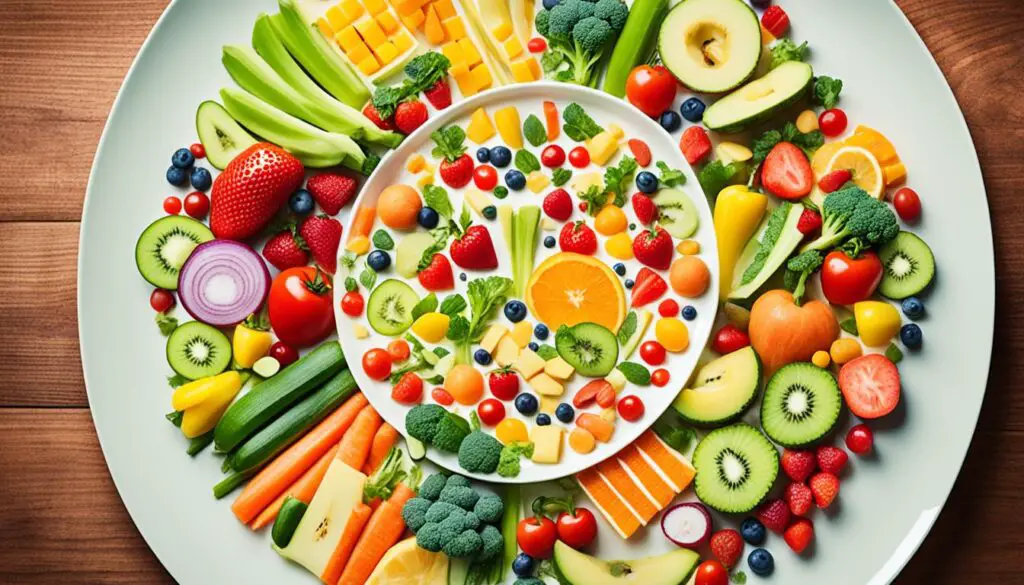
During the first 3 weeks of Phase 3 on the HCG Diet, it’s crucial to be mindful of hidden sugars and starches that can unknowingly sabotage your weight loss progress. These hidden ingredients can be found in various products, including vitamins or supplements with added sugars, seasonings containing sugars or corn starch, and certain meat products that may be injected with sugary broths.
It’s important to carefully read labels and ensure that any products you use during Phase 3 do not contain hidden sugars or starches. This means checking the ingredients list and avoiding products that have added sugars or starches. By doing so, you can maintain your weight loss progress and prevent any unwanted setbacks during this crucial phase of the HCG Diet.
To avoid hidden sugars and starches, consider the following tips:
- Read labels: Take the time to read the labels of any food, drink, or supplement you consume during Phase 3. Look out for ingredients such as cane sugar, high-fructose corn syrup, dextrose, maltose, corn starch, modified food starch, or any other form of added sugars or starches.
- Choose natural and unprocessed foods: Opt for whole foods that are minimally processed and free from added sugars and starches. This includes fresh fruits, vegetables, lean proteins, and whole grains.
- Prepare your own meals: By preparing your own meals from scratch, you have control over the ingredients used. This allows you to avoid any hidden sugars or starches that may be present in packaged or pre-made meals.
- Be cautious with condiments and seasonings: Many condiments and seasonings, such as salad dressings, sauces, and spice blends, can contain hidden sugars and starches. Look for options that are labeled as sugar-free or low in added sugars.
By being diligent in your ingredient scrutiny and making informed choices, you can successfully avoid hidden sugars and starches in HCG Maintenance. This will support your ongoing weight loss journey during Phase 3 of the HCG Diet.
Reason #5: Not tracking or recording daily food intake
One of the common mistakes during Phase 3 of the HCG Diet is not tracking or recording daily food intake. Tracking your food intake is important as it helps in identifying trigger foods that may cause weight gain. By keeping a daily food journal or using a tracking app, you can record the foods consumed each day and easily identify any patterns or habits that may be affecting your progress.
Tracking your food intake allows you to make adjustments as needed. It helps you stay accountable and aware of the choices you’re making during Phase 3. Whether it’s writing in a journal, using a smartphone app, or keeping a tracking book, find a method that works best for you and stick to it.
Identifying trigger foods is another advantage of tracking your food intake. Some common trigger foods during Phase 3 of the HCG Diet include peanut butter, cheese, and fried items. By recording what you eat and observing your body’s response, you can pinpoint which specific foods may be causing weight gain or other negative effects. This awareness allows you to make better choices and avoid weight gain during this crucial phase.
Benefits of Tracking Food Intake on HCG Phase 3:
- Helps you stay accountable
- Increases awareness of your food choices
- Allows you to identify patterns and habits
- Aids in recognizing trigger foods
- Enables you to make adjustments as needed
“Tracking your food intake not only helps in identifying trigger foods but also allows you to stay accountable and make informed decisions during Phase 3 of the HCG Diet.”
| Benefits of Tracking Food Intake | How to Track Food Intake |
|---|---|
| 1. Increased accountability | 1. Use a food journal to record daily meals |
| 2. Enhanced awareness of food choices | 2. Utilize smartphone apps for convenient tracking |
| 3. Identification of patterns and habits | 3. Keep a tracking book to note down food intake |
| 4. Recognition of trigger foods | 4. Use an online platform to record meals and monitor progress |
| 5. Ability to make adjustments |
Reason #6: Not weighing every day
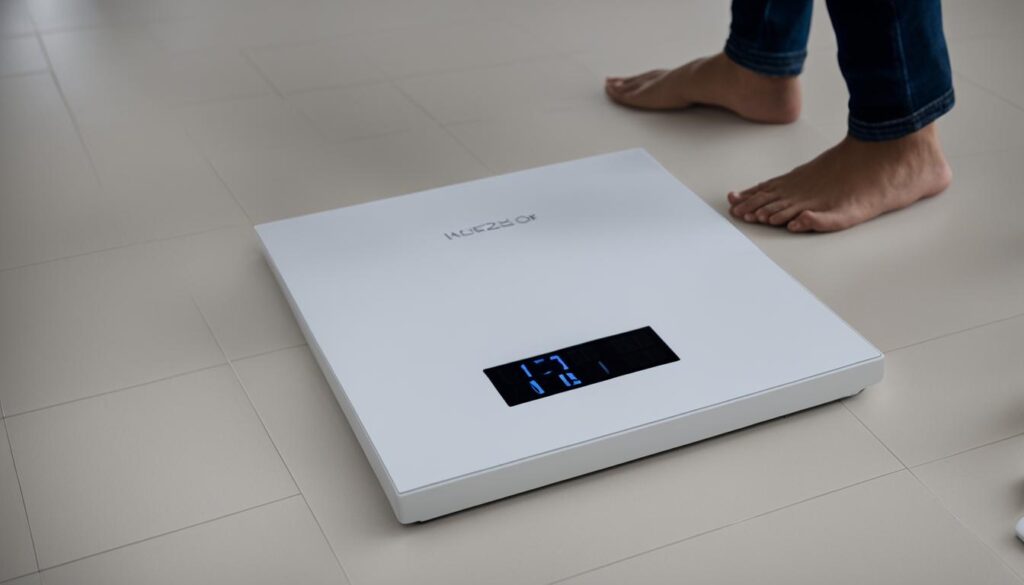
In order to effectively navigate Phase 3 of the HCG Diet, daily weigh-ins play a crucial role. By monitoring your weight on a daily basis, you can track your progress and make necessary adjustments to your diet and lifestyle. Weighing yourself every day allows you to stay aware of any changes in your weight and take immediate action if needed.
Performing daily weigh-ins provides valuable insights into your body’s response to the HCG Maintenance phase. If you notice that your weight begins to creep back up, it may be an indication that you need to make some adjustments to your eating habits or activities.
One popular method for correcting weight gain during Phase 3 is through a technique called a “steak day.” A steak day involves consuming a large steak and an apple for your meal while abstaining from any other foods. This can help reset your body to the desired weight and get you back on track with your weight loss goals.
By performing daily weigh-ins and proactively managing your weight, you can prevent significant weight gain and maintain the results you achieved during the previous phases of the HCG Diet. Remember, consistency and diligent monitoring are key factors in successfully navigating Phase 3 and sustaining your weight loss success.
Reason #7: Not consuming enough protein
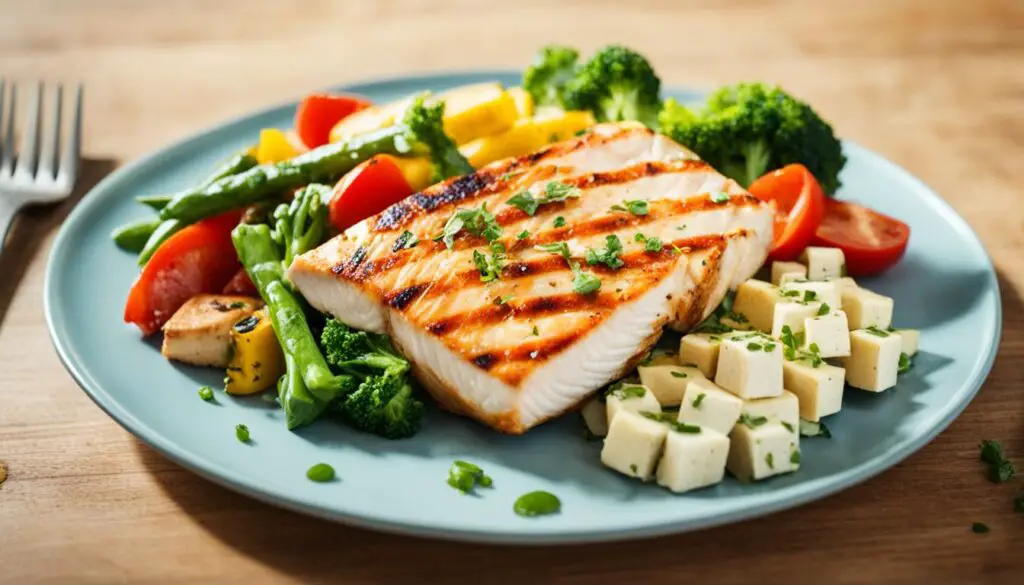
Protein plays a crucial role in Phase 3 of the HCG Diet. It is essential for supporting muscle growth, preserving lean body mass, and ensuring satiety. Unfortunately, many individuals make the mistake of not consuming enough protein during this phase, which can hinder their weight loss progress and make it harder to maintain their results.
Protein is not only important for building and repairing tissues but also for regulating metabolism and promoting overall health. It helps to stabilize blood sugar levels, increase feelings of fullness, and support the functioning of various enzymes and hormones in the body.
In order to ensure sufficient protein intake on HCG Phase 3, it is essential to incorporate protein-rich foods into your meals and snacks. Lean meats such as chicken, turkey, and fish are excellent sources of protein.
Here are some protein sources to consider during HCG Maintenance:
- Chicken breast
- Lean beef
- Fish (salmon, tilapia, cod)
- Eggs
- Greek yogurt
- Low-fat cottage cheese
While whole food sources are ideal, supplementing with protein bars can be a convenient option, especially when you’re on the go. However, it is important to choose protein bars that are specifically designed for Phase 3 of the HCG Diet and do not contain hidden sugars or starches.
By focusing on sufficient protein intake, you can support your weight loss success during Phase 3 and promote overall health and well-being.
Key Takeaways:
- Protein is crucial for muscle growth, satiety, and overall health.
- Include protein-rich foods such as lean meats, fish, eggs, Greek yogurt, and cottage cheese in your meals.
- Supplementing with protein bars can be a convenient option, but choose brands that are specifically designed for Phase 3 of the HCG Diet and do not contain hidden sugars or starches.
- Adequate protein intake supports weight maintenance and overall well-being during Phase 3 of the HCG Diet.
Mistake #1: Not drinking enough water

One common mistake that many individuals make during Phase 3 of the HCG Diet is not drinking enough water. This lack of water intake can have negative effects on both weight management and overall health.
The importance of hydration cannot be overstated, especially during the HCG Maintenance phase. When you don’t drink enough water, your body may retain fluids, leading to weight fluctuations and potentially hindering your progress. By staying well-hydrated, you can support proper liver function and aid in the elimination of toxins from your body.
In addition to supporting weight management, drinking enough water is crucial for preventing constipation, which can be a common issue during this phase. Proper hydration helps keep your digestive system regular and functioning optimally.
To ensure adequate hydration, it is recommended to drink at least eight cups (64 ounces) of water per day. However, individual needs may vary, so listen to your body and drink more if necessary. Pay attention to your urine color as an indicator of hydration; clear or light yellow urine is a sign of proper hydration, while dark yellow or amber-colored urine may indicate dehydration.
Remember, water is calorie-free, so it’s an excellent choice for staying hydrated without adding unnecessary calories to your diet. Make it a habit to carry a water bottle with you throughout the day and sip on water regularly to maintain optimal hydration levels.
The benefits of staying well-hydrated:
- Supports proper liver function and detoxification
- Helps prevent fluid retention and weight fluctuations
- Aids in digestion and prevents constipation
- Maintains optimal overall health
By avoiding the mistake of not drinking enough water during Phase 3, you can optimize your weight loss journey and support your overall well-being.
Mistake #2: Excessive exercise

While exercise is generally encouraged for weight loss, overdoing exercise during Phase 3 of the HCG Diet can hinder progress. The 500-calorie diet does not provide enough energy for intense workouts and can lead to fatigue and hunger.
Light exercise, such as daily walks, is recommended during Phase 2 of the HCG Diet. This helps maintain a healthy activity level without putting excessive strain on the body. However, during Phase 3, individuals should avoid excessive exercise to prevent muscle soreness and water retention.
By sticking to light exercise on HCG Phase 3, individuals can support their weight loss goals without compromising their overall health. Listening to the body and finding a balance between activity and rest is key to achieving success on Phase 3 of the HCG Diet.
Conclusion
Summary of common mistakes in HCG Phase 3:
In conclusion, I have highlighted several common mistakes that individuals often make during Phase 3 of the HCG Diet. These mistakes can hinder their weight loss progress and make it challenging to maintain results. By avoiding these errors, individuals can enhance their chances of sustaining weight loss success and effectively navigate Phase 3 of the HCG Diet.
Some of the key mistakes to avoid in HCG Phase 3 include consuming too many cautionary foods, eating too many or too few calories, adding in too many cautionary foods at once, having hidden sugars or starches, not tracking food intake, not weighing every day, not consuming enough protein, not drinking enough water, and engaging in excessive exercise.
FAQ
What are some common mistakes to avoid in HCG Diet Phase 3?
Some common mistakes to avoid in HCG Diet Phase 3 include eating too many cautionary foods, consuming too many or too few calories, adding in too many cautionary foods at once, having hidden sugars or starches, not tracking food intake, not weighing every day, not consuming enough protein, not drinking enough water, and engaging in excessive exercise.
Why is it important to avoid eating too many cautionary foods during Phase 3?
Eating too many cautionary foods during Phase 3 can hinder weight loss progress. It is important to follow the recommended food chart and menu suggestions provided during this phase to make better choices and ensure the proper intake of allowed foods.
What can happen if I consume too many or too few calories during Phase 3?
Consuming too many calories can lead to weight gain, while consuming too few calories can cause the body to go into starvation mode and hold onto weight. It is crucial to find a balance and aim for the recommended daily calorie intake of 1,500 calories during Phase 3.
How should I add cautionary foods back into my diet during Phase 3?
It is important to gradually introduce new cautionary foods and give your body time to adapt to them. Following a food chart or guide can help you determine which cautionary foods are allowed during Phase 3. By introducing new foods slowly and in moderation, you can avoid weight gain and maintain your weight loss progress.
Hidden sugars and starches can unknowingly be consumed during the first 3 weeks of Phase 3, which can hinder your weight loss progress. It is important to read labels carefully and ensure that any products used during Phase 3 do not contain these hidden ingredients.
How can tracking my food intake help me during Phase 3 of the HCG Diet?
Tracking your daily food intake can help you identify trigger foods that may cause weight gain. By recording the foods you consume each day, either in an app, journal, or tracking book, you can recognize patterns and make necessary adjustments to ensure continued progress on Phase 3.
Why is weighing every day important during Phase 3 of the HCG Diet?
Weighing yourself daily allows you to track your weight loss progress and make adjustments if necessary. If your weight starts to creep back up, you can perform a “steak day” to correct it. By weighing yourself daily and being aware of any changes, you can prevent significant weight gain and maintain your results on Phase 3.
Why is consuming enough protein crucial during Phase 3 of the HCG Diet?
Not consuming enough protein during Phase 3 can make it harder to maintain weight loss compared to those who regularly include protein in their meals. You can ensure adequate protein intake by supplementing with protein bars, but it is important to choose brands that do not contain hidden sugars or starches.
What can happen if I don’t drink enough water during Phase 3?
Not drinking enough water can lead to fluid retention and weight fluctuations on Phase 3. It is important to stay well-hydrated to support proper liver function, the processing of toxins, prevent constipation, and support overall weight loss.
Can excessive exercise hinder progress during Phase 3 of the HCG Diet?
Yes, excessive exercise during Phase 3 can hinder progress. The 500-calorie diet during Phase 2 does not provide enough energy for intense workouts and can lead to fatigue and hunger. Light exercise, such as daily walks, is recommended on Phase 2, but excessive exercise should be avoided to prevent muscle soreness and water retention.

